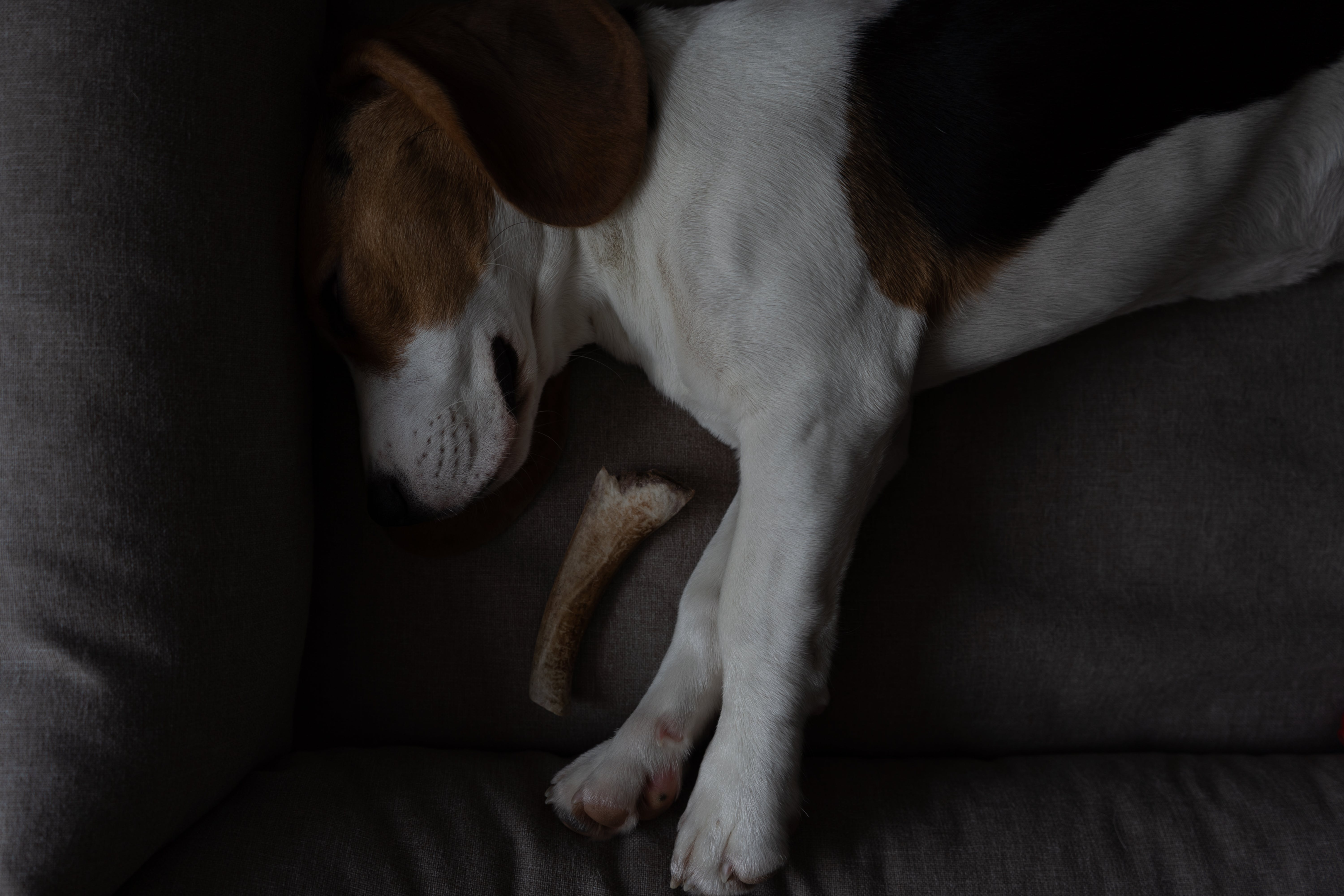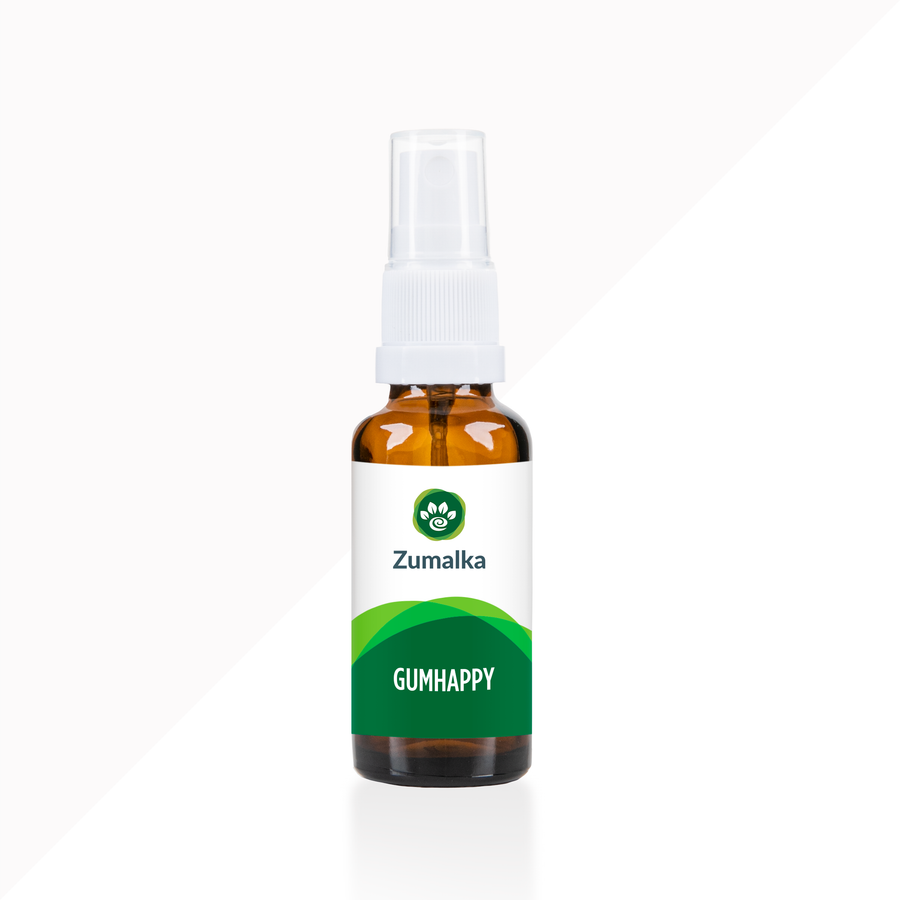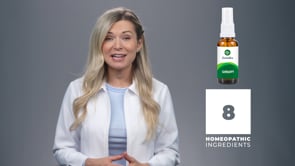Oral Health for Aging Beagles: Essential Dental Care Practices
Older Beagles need more comprehensive oral and dental care since they are highly prone to periodontal disease, tooth loss, and other related health issues at this point in their lives. The lack of close attention to your aging dog's teeth and gums can lead to detrimental consequences sooner or later.
If you've got a senior dog and you're looking to take your canine dental health know-how up a notch, then you've come to the right place. Make sure you read on to get in on simple and practical tips about proper dental care for beyond adult Beagles.
We're even going to show you how weight loss can be an indirect sign of tooth and gum problems as we go along. How about we kick things off by having a quick overview of why caring for your dog's teeth and gums should be a priority during his golden years?
Why Your Dog's Dental Health is a Priority During His Senior Years

Although this may sound surprising, there are a lot of changes taking place in your aging Beagle's body right now. This is something a lot of pet owners seem to overlook. While some of these changes are mental in nature, most of them are physical and can possibly affect your dog's dental health.
Due to some key factors like genetics, diet, environment as well as the fact whether your much older dog regularly practices proper dental care like brushing teeth or not, dental issues can get in the picture before you know it.
We'd just like to emphasize that the term "canine dental health" isn't just about establishing a consistent tooth brushing schedule to keep dogs' teeth clean and curb stinky breath. It also involves strategies on how to prevent periodontal disease and similar wellness problems that can potentially lead to more serious conditions like heart disease in dogs.
In sum, giving your dog's dental health the right care and attention is crucial in realizing a happy and healthy life for your canine best friend. Keep in mind that this doesn't just affect his or her teeth but can also have a huge impact on your pet's overall wellness and immune system.
Common Health Problems Involving Your Older Dog's Teeth and Gums

If we're being honest, many dogs in their golden years become vulnerable to dental problems because of various reasons. They might not have their teeth brushed regularly. They might have had a problem with their puppy tooth that was left unattended and became aggravated over time.
It's also likely that they have a significant accumulation of plaque and tartar that already requires professional cleanings. Regardless of the particular reason, your senior dog can become highly at risk of serious disease if you fail to properly look after his canine dental health.
The following are the most common problems that can affect your aging dog's mouth, teeth, tongue, and gums. It is important to remember that these are not just possibly extremely painful, but can also set off many diseases and illnesses if disregarded:
Changes in bite alignment
While considered by veterinary dental care professionals as a somewhat rare condition in senior dogs, changes in bite alignment or "malocclusions" can still happen unexpectedly in many dogs during their beyond adult years.
This problem is characterized by your older dog gradually developing misaligned molars, premolars, canine teeth, and incisors over time. It can also be indicated by swollen gums and the visible crookedness of your dog's teeth upon closer inspection.
While the effect of these changes in bite alignment is merely cosmetic in other dogs, some aging Beagles may experience pain or trauma affecting the gum line, cheeks, lips, and even the roof of the mouth. This condition can indirectly trigger gum disease and tooth decay if overlooked.
Chipped or fractured teeth
It's not uncommon that most dogs in their senior years will have weak and brittle teeth. This is especially true among those who are not provided with the proper dental care during their puppy, juvenile adult as well and adult years.
Having chipped or broken teeth in much older Beagles is often linked with poor diet, an irregular or even the complete lack of dental cleaning and maintenance, as well as the presence of an underlying health condition.
Bringing your aging pooch to an emergency clinic as soon as you discover that he has a chipped or broken tooth is crucial. Bacteria and other unwanted visitors can use these accidental openings to cause damage or even cause illness and disease in dogs in the long run.
Swollen gums and similar gum health issues

Gum disease is perhaps one of the most common problems that you will possibly encounter when your senior dog's dental health is concerned. This can be anything from inflamed or swollen gums to more serious conditions like periodontal disease.
According to the Veterinary Oral Health Council, canine periodontal disease will not just lead to loose teeth or teeth, but can also be a factor in the development of serious health issues affecting the liver, kidney, and heart over time.
Prevention is better than cure in this situation. Keep in mind that canine dental health is not just about clean teeth. Having a checklist on how to prevent periodontal disease or gum disease is crucial if your Beagle is already living out his golden years.
Accumulation of plaque and tartar
We'd just like to point out that your aging dog's teeth come in contact with a lot of substances every day. These can possibly include sugars, proteins, fats, and oils as well as cereals depending on your senior Beagle's regular diet. Other dogs can even have foreign objects like pieces of plastic and twigs in their list, too.
Although your aging dog's teeth are naturally strong and won't have an issue being in contact with these substances, the problem begins when these things get stuck in them due to the infrequency or even lack of tooth brushing and cleaning.
This leads to the accumulation of plaque and tartar, which is almost always involved when it comes to dental health issues in dogs. While "plaque" and "tartar" are often used interchangeably, these terms are actually distinct from each other.
Plaque refers to the sticky matter that is made up of food particles and saliva. It is usually formed when a dog's teeth are not cleaned a few hours after eating. The longer plaque lingers inside the mouth, the more attractive it becomes to bacteria that cause gum disease and dental disease.
On the other hand, tartar pertains to the hard material that plaque transforms into after a few hours. It is also called "dental calculus." While tartar is often seen forming above the gum line, it can also accumulate beneath it. Removing tartar already requires professional veterinary care.
Dental abscesses beyond adult dogs
A tooth abscess is a type of severe infection that typically begins in and around your dog's teeth. While an abscess affecting your dog's teeth is neither classified as a dental disease nor a periodontal disease, this condition can give rise to a number of adverse canine health issues if not immediately dealt with the right way.
This can be anything from the infiltration of bad bacteria in your dog's bloodstream to the development of heart disease. Even a puppy tooth is potentially prone to abscess and can disrupt the well-being of younger dogs.
Although abscesses in your older Beagle's teeth are caused by a lot of factors, they always involve bacteria, particularly those that trigger gum disease. Dogs with loose teeth or have an underlying dental disease are usually the ones highly at risk of abscesses.
Excessive accumulation of plaque and tartar can also stimulate their development. In the case of other dogs, they can also potentially develop abscesses when they accidentally traumatize their own teeth (such as when your senior dog forcefully bites into bone).
Moreover, it is crucial to remember that tooth abscesses in dogs do not heal on their own. Professional dental care and assistance from members of the veterinary practice are a must when this health problem gets in the picture.
Stomatitis in dog's mouth and inflammation
Canine stomatitis is a condition that usually accompanies periodontal disease. It is characterized by the inflammation of the mucous membranes that line the mouth, tongue, gums, and even the palate in some cases.
You can think of stomatitis as having blister-like lesions that can cause a lot of pain and discomfort to your senior dog each time he chews, drinks or moves his tongue. Besides early detection, administering appropriate dental care as soon as possible can help curb the worsening of this problem.
The Dangers of Dental Disease in Your Beagle's Golden Years

As we've highlighted earlier, dental issues in aging Beagles can have a huge impact on their overall well-being. And things will just get worse if these problems are not given the right care and attention.
Here are the potential dangers that your canine best friend can be exposed to if he has poor dental health:
Your senior dog will be subjected to chronic severe pain.
Issues like swollen gums, loose teeth (particularly during their later stages), stomatitis, and canine abscess can be very painful. What's even more alarming about these conditions is that the pain and discomfort that your aging Beagle may feel can last between a few minutes to a few hours.
We'd just like to emphasize that some extremely severe dental issues can set off bouts of chronic pain—as in constant pain that never seems to go away. Some dogs will already require regular doses of "conventional" painkillers in this situation, which can expose them to adverse side effects in the process.
Your older Beagle's teeth will be prone to tooth decay and possible tooth loss.
The lack of regular tooth brushing can lead to the accumulation of plaque and tartar in your dog's mouth. The excessive buildup of the latter can result in dental health issues like periodontal disease and even tooth loss in some circumstances.
If you can't remember the last time you gave you beyond adult Beagle a good brushing, then it's high time you establish a more meticulous approach with respect to cleaner teeth and gums for your canine companion.
Gum disease can possibly trigger conditions affecting your senior dog's health.

The lack of proper and regular dental care can increase your Beagle's risk of periodontal disease, which can open up the possibility of exposing him to more serious diseases like kidney problems and congestive heart failure.
And given that your much older pet's immune response may not be as resilient as before, recovering from said health issues can be extremely demanding for his body. Naturally boosting his overall immune system health is one strategy you can go for in this situation.
Poor dental health in older dogs can significantly lessen your Beagle's quality of life.
The lack of proper and regular dental care for beyond adult Beagles does not just prevent your pet from being as healthy as can be. Being subjected to chronic pain and possible various complications arising from infections and similar problems also makes your pooch miss out on being happy.
Some much older dogs become so affected by this problem that they will even exhibit signs akin to separation anxiety or depression. Don't you think your canine best friend deserves ideal dental care during his senior years?
Early Signs That Your Aging Dog Has Periodontal Disease and Similar Dental Health Issues

Issues with dental health in golden-aged Beagles are usually indicated by signs. And the more serious problems tend to come in sooner or later when these signs are ignored or set aside. Below you will find the crucial things to keep an eye on when it comes to your aging pet's dental health:
#1. Bad breath
Conditions like tooth decay and gum disease in dogs involve the presence of bacteria. They typically linger on the tongue, in and around the throat, as well as in the pockets created by teeth cavities. When these bacteria break down food particles, they release stinky sulfur compounds.
However, this doesn't automatically mean that your senior Beagle has an oral or dental problem when he has bad breath. If the smell still persists after a thorough tooth brushing and mouth cleaning, then it can be attributed to some dental health issues.
One simple experiment that you can do is consistently giving your aging Beagle a dental chew in a span of a day. If the bad smell is still present, then there is a possible tooth or gum disease involved.
#2. Dense accumulation of dental calculus
Dental calculus or tartar are hard mineral-like deposits that can build up beneath or above your senior Beagle's gum line. In extreme cases, they can even totally surround the whole affected tooth and surrounding gums.
If you notice a distinct difference in color and texture when you examine your dog's teeth, chances are he's already got a lot of dental calculus or tartar to get rid of. It is important to remember that removing the same can't be done using the usual doggie dental products like dental chews. This problem already requires professional help.
#3. Sudden change in feeding habits

Another indicator of dental health issues in dogs is an unexpected shift in your older Beagle's feeding habits. Apart from not eating as much as he used (even if you're serving his favorite meals), your pet may also avoid eating altogether.
This is the reason why sudden weight loss is attributed as an indirect sign of tooth and gum disease in canines.
#4. The presence of loose teeth (and missing ones)
Do you still remember the time when your aging Beagle lost a puppy tooth or two a long time ago? It usually involved a lot of drooling, spilled food during meals, as well as a bit of blood in the mouth. If your senior pet is showing these signs these days, it's highly likely that he's going through a dental health problem.
We'd also like to emphasize that loose or missing teeth are typically accompanied by facial swelling or redness in the affected areas. These may indicate the presence of an abscess. Bringing your pooch to an emergency clinic for a check up and lab tests is crucial in this situation just to be extra safe.
#5. Constant pawing at the face or mouth
Pawing is an inherent canine gesture that is usually displayed when a dog experiences pain and discomfort in a particular area. Should you notice your pet constantly pawing at his face or mouth, there's a big possibility that he is suffering from an oral or dental disease.
Additionally, this is often accompanied by drooling as well as frequent vocalization. Unexpected weight loss is another factor that tags along with these.
#6. Unexpected change in behavior and mood swings
A senior Beagle going through dental health problems is going to be prone to some adverse mental effects. Your pet won't be as lively as before. He will tend to avoid play and socialization. Your pooch will exhibit either excessive aggression or become very reserved.
And it is important to remember that this change in behavior will just worsen over time.
Important Tips To Remember on Dental Care for Aging Beagles

Unlike what a lot of dog parents mistakenly think, keeping your senior Beagle's oral and dental health in tiptop shape isn't that tricky to pull off. Keeping the following pointers in your home pet care checklist will help you get on the right track:
Regularly consult a professional.
Getting in touch with a pet homeopathy expert or a vet on a regular basis is a must when it comes to canine dental health. Besides giving you a heads up on possible issues with your aging dog's teeth and gums, you'll also receive recommendations as regards the next steps you should take in case there are any.
Canine dental health must be a long-term priority.
Giving your senior Beagle's teeth and gums the right care and attention is not just a one-time thing. It must be done on a daily basis and will require a lot of effort as well as elbow grease depending on the situation.
Keep in mind that ensuring your aging dog's healthy teeth and gums can't be achieved by simply giving him a dental chew or two every day.
Examine your senior Beagle's teeth daily.
Make it a point to thoroughly check your beyond adult dog's teeth before and after brushing. The same goes for his gums, inner cheeks, and tongue. Look for irregularities like a distinct difference in color, mineral-like deposits, the presence of cavities, inflammation, or persistent stinky breath.
We highly recommend having a pen and paper while doing this so you can note down your observations. You can then use the same to compare with previous and future notes.
Don't ignore even the slightest dental problems.
So you've noticed a slight discoloration on your older Beagle's teeth or a lesion-like irregularity on his gums. It is important that you take note of these immediately. The smartest strategy to take is to observe these irregularities for a day or two and contact your pet wellness expert or vet if they don't go away.
Neglecting the slightest dental problems can potentially lead to more serious ones popping up before you know it.
Be meticulous with your older dog's dental products.
Now here's something a lot of Beagle parents seem to overlook. Always use dog-appropriate dental products when practicing proper and regular oral hygiene with your pet. A very significant example is using human toothpaste when cleaning and brushing senior Beagle teeth.
See, human toothpaste contains ingredients that can be harmful or even fatal to your canine companion. Besides being loaded with sodium, which can disrupt normal gastrointestinal function, these can also contain an artificial sweetener called xylitol which is highly toxic to canines.
Keep in mind to always use the right doggie toothpaste. The same goes for dental chews, dental treats, dental water additives, and similar products.
Consider including a natural dental care kit in your pet care checklist.
Our ORAPET-OPTIMAL is a kit that's designed to give your senior Beagle's dental health the comprehensive support and protection it deserves.
This package contains TONICPET #1, TONICPET #2, TONICPET #4, and TONICPET #12, which collectively promote healthy bones and tissues of the mouth, support the circulation of oxygen in all parts of the body for added oral comfort as well as helps fortify the quality of teeth enamel.
If you're looking to get your hands on a simple and practical option to keep your aging Beagle's teeth and gums in tip-top shape, ORAPET-OPTIMAL is a choice you should consider. And did we already mention that this kit is made from premium natural ingredients, too?







Leave a comment